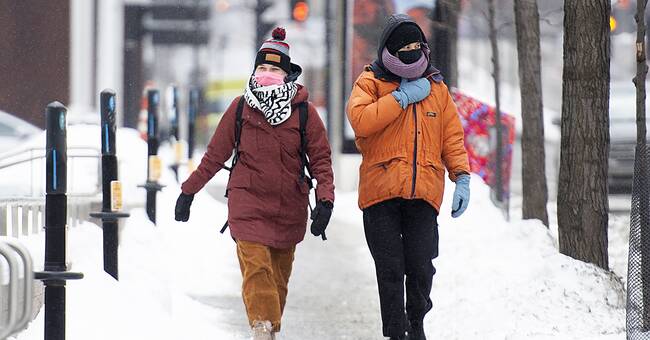No one is safe until everyone is safe, the World Health Organization (WHO) says about how countries should think about the covid-19 vaccine.
But the question is how many people listen?
The recent weeks between the EU and the UK over Astra Zeneca's vaccine with threats of stopped deliveries have led many observers to talk about a new kind of nationalism that has arisen around the vaccines.
China and the United States are the countries that have vaccinated the most people, followed by the United Kingdom, Israel and India.
The other day, UN Secretary-General António Guterres pointed out that only 20,000 of the 70 million vaccine doses in the world have gone to the African continent.
Israel, which has vaccinated more than half of its population, has been sharply criticized for not including Palestinians in the West Bank and Gaza.
WHO: That's morally right
The WHO is now urging countries around the world to first vaccinate their risk groups and healthcare professionals, and then share their vaccine doses fairly around the world.
To do so is not only morally right, but also brings great economic gains, says the WHO.
If the world does not share the vaccines fairly, the world economy could lose over nine trillion, according to a report by the ICC, the International Chamber of Commerce.
At the same time, people are dying every day in covid-19 around the world, and new, more contagious variants discovered in South Africa and the UK are worrying experts.
Admittedly, there are international vaccine collaborations, such as Covax, which include over 190 countries.
The organization claims to have secured two billion vaccine doses, but it is unclear how quickly they can access them.
Questions without simple answers
So the question is how should Sweden do?
The risk of dying in covid-19 increases significantly after the age of 70.
When all seventy-plus people have been vaccinated, as well as other risk groups and health care professionals - is it then morally right to offer vaccines to the rest of the population?
Should we younger and healthy give up the syringes in favor of risk groups in other countries, at least until this autumn when more doses have been produced?
The questions have no simple answers.
Younger people can also become seriously ill from the virus, although the risk of dying is small.
Many, especially younger women, seem to be particularly affected by long-term covid symptoms.
The National Union of Teachers wants teachers to be given priority over vaccines, and the issue of priority has also been raised in other professions that work closely with people.
In the coming time, Sweden and the rest of the EU's representatives need to think about how solidary we can be in the midst of a societal crisis - and how many doses we can do without to the outside world.
Of course, the WHO is right when they say that no one is safe as long as not everyone is safe.
The only question is whose safety should be prioritized first.

